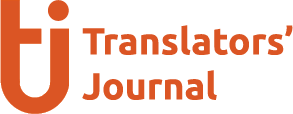
When I started my translation career, despite some early success, I struggled to find consistent work in the first year. In fact, I still experience sporadic periods of drought each year. And this is normal, at least for some language pairs. That’s why you need to have a strategy and the patience to consistently follow that strategy.
If you are reading this article, I hope you too have probably completed your first translation job. Probably you got that job as a surprise, without desperately looking for it. Maybe you were not exactly planning to be a translator. With that job completed, you’re likely to be excited about your success and eager to pursue a career in translation. But this time it is getting tougher and tougher.
After some initial success, to secure a regular flow of jobs as a freelance translator takes time and consistent effort. Be strategic, consistent, and patient. You will discover your client base soon.
Here are our 3 Steps Guide to find translation jobs in your early years
A. Preparation
B. Finding Jobs
C. Strategy
A. Preparation for a Translation Career
This phase is about equipping yourself with the tools, skills, and presence to attract clients and set the foundation for long-term success.
1. Keep Your Résumé Handy
Have your résumé up to date. You will need this handy to share with project managers or clients every time you are contacted. Have a clean one or two pager résumé highlighting your education, certifications, and relevant experiences.
2. Create a Portfolio
Portfolios are great to fast track your application to the final stage of hiring. If you still don’t have one, start compiling yours. These are samples of your best translation work that demonstrates your abilities.
3. Be Present Online
You want to be discovered online by your prospective clients. Optimize your online presence. Use relevant keywords and tags to make your profiles easily discoverable. There are few other ways to be discoverable online:
- Create a professional website:
It may sound obvious but you will be surprised to see how many translators don’t have a website of their own. Professional websites are your marketing outpost that gives you both credibility and authority.
- Be on LinkedIn:
You will need Text-based social platforms like LinkedIn and X are great places for translators.
- Show your Work:
Consistently provide value to your networks. Share your work process, experiences, mistakes, learning, and anything that might be valuable to others. Engage, and let your network know you are there.
B. Finding Translation Jobs
Once you’re ready to go, the next step is securing your first (or next) job. This part is all about proactively seeking opportunities, from joining translator portals to cold emailing potential clients. Persistence and strategy are key—let your search be as targeted as your skills.
1. Join Translator Portals
There are portals like Proz or TranslatorsCafé that can be a good source of prospective jobs. These are specialized platforms for translators and they have job boards where you can find new jobs in your language pairs. These platforms also facilitate a strong community for networking.
2. Reach out to translation agencies
Language Services Providers (LSP) or translation agencies share a big percentage of translation jobs. There are big agencies like the ones that make their places in Nimdzi 100 as well as boutique agencies offering tailor-made services to their clients. Often it is noticed that the big agencies have more extorting offered prices than the boutique agencies. Still I think it is a good idea to be in the linguist pool of as many translation agencies as possible. Here is a live list of agencies I come across with my comments.
3. Cold Email Potential Clients
Try to keep a live list of your clients and details of contact persons. This will help you understand your clients better and provide you with some patterns. This is a great way to identify potential clients. Once you identify potential clients, reach out to those businesses, organizations, and individuals who may need translation services.
4. Utilize Freelancing Marketplaces
For valid reasons freelancing platforms are one of the first places freelancers would go for work. Platforms like Upwork, Fiverr, and Freelancer can connect you with clients seeking translation services. Some translators argue that these are platforms where often translation work is undervalued. My take is it is a good idea to explore freelance marketplaces and stick with the ones that work. Besides, you are and should always be in control of which projects to take and which to let go.
C. Strategy for a Successful Translation Career
Finally, to build a sustainable career, you need to adopt a long-term strategy. This means specializing in a niche, continuously improving your skills, and staying patient through the ups and downs. By maintaining a proactive, strategic mindset, you’ll turn your freelance translation career into a thriving business.
1. Specialize in a Niche
- Identify your areas of expertise: Focus on specific language pairs, industries, or subject areas to attract clients with specialized needs.
- Build a reputation: Become known as an expert in your chosen niche to attract clients seeking specialized translation services.
- Look into Specializing: Since they have to compete with every translator under the sun, generalists have a much harder time finding work. Find a few industries that you have experience or interest in and build your new portfolio around them. This allows you to showcase yourself as an expert in the field and sets you apart from other applicants.
2. Utilize Your Down Time when you don’t have a Job:
- Work on the CV
- Improve your Portfolio
- Share something valuable regularly
- Provide pro bono services to nonprofits like Translators without Borders. Don’t sit idle, if there’s not much paid work, volunteer to a cause you support.
- Read regularly
- Sharpen your Tools glossaries, term bases, translation memory.
3. Stay Open-minded
Just because a job pays a bit less than what you’re used to doesn’t mean that it’s a bad one. Use your first year in the industry to explore what’s out there. The volume of translation work depends on which language pair you are working with. A language pair with more frequent jobs also indicates it has higher competition. ANyways, you need to be consistent, strategic and patient especially early in your career or in the first year to be exact.
4. Be Ethical
Have very clear values and ethical standards that you run by and stick to it in every situation.
5. Provide excellent customer service
Respond promptly to inquiries, communicate effectively, and deliver high-quality translations.
Key Takeaways:
- Preparation is Crucial:
- Resume: Keep it updated and concise, highlighting relevant skills and experience.
- Portfolio: Showcase your best work to demonstrate your abilities.
- Online Presence: Build a professional website, utilize LinkedIn, and actively engage with your network.
- Finding Jobs:
- Translator Portals: Explore platforms like Proz and TranslatorsCafé.
- Translation Agencies: Reach out to both large and boutique agencies.
- Cold Emailing: Identify potential clients and directly contact them.
- Freelancing Marketplaces: Utilize platforms like Upwork and Fiverr, but be mindful of pricing translation services.
- Strategic Approach:
- Niche Specialization: Focus on specific language pairs, industries, or subject areas.
- Continuous Improvement: Utilize downtime for professional development, networking, and skill-building.
- Open-mindedness: Be willing to explore different opportunities and consider projects that may not be your ideal rate initially.
- Ethical Conduct: Maintain high ethical standards and prioritize client satisfaction.
- Excellent Customer Service: Respond promptly, communicate effectively, and deliver high-quality work.
Additional Thoughts:
- Networking is Key: Attend industry events, join online communities, and connect with other translators.
- Continuous Learning: Stay updated on industry trends, new technologies, and best practices.
- Pricing Strategy: Determine your rates based on your experience, skills, and market value.
- Marketing Yourself: Create a strong online brand and actively promote your services.
- Patience and Persistence: Building a successful freelance translation career takes time and effort. Don’t get discouraged by setbacks.
FAQ: Finding Your First Jobs as a Freelance Translator
Q: How do I get my first translation job? A: Start by optimizing your résumé, creating a portfolio, and joining translation job portals. Networking and reaching out to agencies also help.
Q: Do I need certification to become a translator? A: While certification can help establish credibility, it is not always necessary. Experience and proven skills often matter more.
Q: Where can I find translation jobs online? A: Platforms like Proz, TranslatorsCafé, Upwork, and Fiverr are good places to start. Reaching out to agencies and cold emailing clients can also be effective.
Q: How can I stand out as a freelance translator? A: Specializing in a niche, building an online presence, and maintaining high-quality standards will help you stand out.
Q: What should I charge for my translation services? A: Your rates depend on factors like language pair, specialization, and experience. Research market rates and adjust based on your skill level.
Q: Is it necessary to have a website? A: Having a professional website increases credibility and can attract clients. It is a valuable tool for marketing your services.
Q: How long does it take to establish a steady workflow? A: It varies, but most freelancers take 1-2 years to build a consistent client base. Persistence and continuous learning are key.
Q: Should I work with translation agencies or direct clients? A: Both have pros and cons. Agencies provide a steady stream of work, while direct clients often pay higher rates.Q: How do I avoid scams in freelance translation? A: Be cautious of clients who refuse contracts, delay payments, or offer rates far below market value. Always verify client credibility before accepting work.
Are You Looking for Jobs in the Language Industry?
If you are looking for in-house jobs, you should check out Weekly Job Window.
Every week, we handpick in-house jobs for translators, interpreters, linguists, writers, editors, and localization professionals so you can stay updated without searching hundreds of listings spread across the internet.
You can access the latest jobs of the current week here. Feel free to bookmark it as well.
To get the full list every week to your inbox, subscribe.



